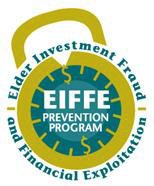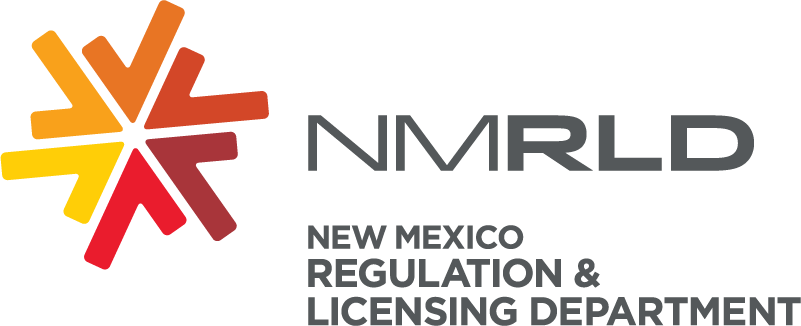Elder Investment Fraud & Financial Exploitation Prevention Program
Elder Investment Fraud and Financial Exploitation
 Senior citizens have long been the target of unscrupulous investment scam artists. This is especially true of seniors who have mild cognitive impairment (MCI). According to the 2010 Investor Protection Elder Fraud Survey released in June, 7.3 million older Americans – one out of every five citizens over the age of 65 – already have been victimized by a financial swindle. The IPT survey also found that half of older Americans exhibit one or more of the warning signs of current financial victimization. For example, more than one out three seniors (37 percent) are currently being pitched by “people (who) are calling me or mailing me asking for money, lotteries, and other schemes,” while a much lower 19 percent of adult children believe that their parents are being pressured in such a fashion.
Senior citizens have long been the target of unscrupulous investment scam artists. This is especially true of seniors who have mild cognitive impairment (MCI). According to the 2010 Investor Protection Elder Fraud Survey released in June, 7.3 million older Americans – one out of every five citizens over the age of 65 – already have been victimized by a financial swindle. The IPT survey also found that half of older Americans exhibit one or more of the warning signs of current financial victimization. For example, more than one out three seniors (37 percent) are currently being pitched by “people (who) are calling me or mailing me asking for money, lotteries, and other schemes,” while a much lower 19 percent of adult children believe that their parents are being pressured in such a fashion.
Of particular concern are seniors with mild cognitive impairment who can perform most daily functions, but have trouble or become confused with others, like following their medicine regimen and managing their finances. A 2008 Duke University study found that about 35 percent of the 25 million people over age 71 in the U.S. either have mild cognitive impairment or Alzheimer’s disease. This makes them especially vulnerable to financial exploitation, including investment fraud. And researchers at the University of Alabama in Birmingham and University of Iowa have shown how older persons with cognitive impairment are more prone to make financial errors and willing to gamble with their money. In the earlier Texas pilot test, doctors taught by the Baylor College of Medicine team used the “red-flag” questions in the clinician’s pocket guide to find and refer vulnerable older adults to help prevent fraud from occurring.
What is the Elder Investment Fraud and Financial Exploitation Prevention Program?
- The “Elder Investment Fraud and Financial Exploitation Prevention Program” will educate medical professionals who see older people in their practices about how to spot older Americans who may be particularly vulnerable to financial abuse and then to refer suspected investment fraud involving these at-risk patients to state securities regulators and/or to local Adult Protective Services (APS) professionals.
- A collaboration between the Baylor College of Medicine, IPT, IPI, National Adult Protective Services Association (NAPSA), and NASAA in cooperation with leading U.S. medical associations including the American Academy of Family Physicians, the National Area Health Education Center Organization and the National Association of Geriatric Education Centers at the national level and State Securities Regulators’ offices, Adult Protective Services (APS) offices and state chapters of the professional medical associations at the state and local level.
- The primary goal of the EIFFE Prevention Program is to train physicians, adult protective services professionals and senior caregivers to identify and assist those individuals at risk of elder investment fraud due to mild cognitive impairment.
How will the program work?
- Using the model that was piloted in Texas by Baylor, the EIFFE Prevention Program will utilize Continuing Medical Education (CME) trainings to educate medical professionals who routinely see older Americans as part of their practice about elder investment fraud, how to recognize it in their patients and to whom to report suspected fraud.
- Medical professionals will also be educated to look for vulnerability to investment fraud due to mild cognitive impairment among their senior patients and to refer those patients for further medical screening. This will help prevent elder investment fraud from occurring.
What are elder investor fraud risks?
- Persons with changes in the prefrontal cortex of the brain are less risk averse than age-matched persons without changes in the orbitofrontal cortex.
- Persons with MCI are four times more likely to make financial errors than those without this condition.
- Persons over age 71 (25,000,000 in the U.S.) who have MCI or full dementia number almost nine million (35%).
- Persons with Parkinson’s disease, diabetes, and other cerebrovascular disease also have an increase in being defrauded due these common medical conditions.
How will medical professionals be trained?
- The EIFFE Prevention Program will train medical professionals about elder investment fraud through Continuing Medical Education (CME) courses.
- All medical professionals are required to obtain ethics continuing medical education credits to maintain their licensure and or certification. EIFFE content fits into the category of medical ethics.
- Baylor is developing EIFFE state-specific CME courses for each of the participating states/jurisdictions and each of those CME courses is being accredited by the Texas Academy of Family Physicians.
- The PowerPoint presentations also include general investor education and protection information for the further edification of the medical professionals. This information will be presented by a representative of the state securities office or another qualified individual.
- CME courses will be delivered by presenters with medical credentials.
- Local medical association partners will be instrumental in reaching out to medical professionals to participate in the CME as well as event logistics such as location selection, invitations, marketing the events, etc.
- State securities regulators offices will also have the ability to participate in the state Geriatric Education Center (GEC) annual conferences.
How will Adult Protective Services Professionals be involved?
- APS professionals are an existing reporting channel for medical professionals who suspect that their patients are victims of elder abuse and neglect.
- Through the existing NASAA/NAPSA partnership, the EIFFE Project Team will identify APS professionals in each participating state to work with the state securities regulators office. The EIFFE Project Team will develop a webinar for APS professionals including PowerPoint presentation specifically focused on investor protection issues including fraud, reporting, outreach to medical professionals, etc.
